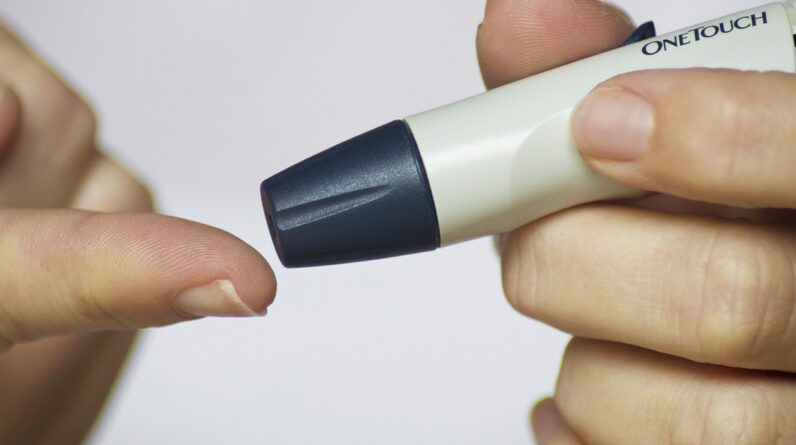
Introduction
When it comes to managing blood sugar levels, nutrition plays a critical role. Proper nutrition can help stabilize blood sugar levels, increase energy levels, and improve overall health. In this article, we will explore the relationship between nutrition and blood sugar management, as well as provide practical tips on how to make healthier food choices.
Understanding Blood Sugar
Before we delve into the role of nutrition in blood sugar management, it’s essential to understand what blood sugar is and why it matters. Blood sugar, also known as glucose, is the primary source of energy for the body’s cells. When we eat, our digestive system breaks down carbohydrates into glucose, which is then released into the bloodstream. The pancreas releases insulin to help cells absorb glucose for energy.
The Importance of Balanced Blood Sugar Levels
Maintaining balanced blood sugar levels is crucial for overall health. When blood sugar levels are too high or too low, it can lead to various health issues such as fatigue, mood swings, weight gain, and even chronic conditions like diabetes. By focusing on proper nutrition, we can help keep blood sugar levels stable and prevent these negative effects.
Nutrition and Blood Sugar
Macronutrients and Blood Sugar
Macronutrients, including carbohydrates, proteins, and fats all play a role in blood sugar management. Carbohydrates are the primary source of glucose, so it’s essential to choose complex carbohydrates like whole grains, fruits, and vegetables over simple sugars like candy and soda. Proteins and fats help slow down the absorption of glucose, preventing rapid spikes and crashes in blood sugar levels.
Glycemic Index
The glycemic index (GI) is a scale that ranks how quickly different foods raise blood sugar levels. Foods with a high GI, like white bread and sugary snacks, cause a rapid spike in blood sugar, followed by a crash. On the other hand, foods with a low GI, such as legumes and whole grains, release glucose slowly into the bloodstream, helping to maintain steady energy levels.
Fiber and Blood Sugar Regulation
Fiber is an essential nutrient for blood sugar management. Soluble fiber, found in foods like oats, beans, and flaxseeds, helps slow down the absorption of glucose and can improve insulin sensitivity. Increasing fiber intake through whole foods and supplements can help regulate blood sugar levels and promote overall digestive health.

This image is property of pixabay.com.
Tips for Improving Blood Sugar Management Through Nutrition
Balanced Meals
One of the most effective ways to manage blood sugar levels is to eat balanced meals that include a combination of carbohydrates, proteins, and healthy fats. By choosing nutrient-dense foods like whole grains, lean proteins, and plant-based fats, we can help stabilize blood sugar levels and avoid energy crashes.
Portion Control
Monitoring portion sizes is another critical aspect of blood sugar management. Eating large meals can lead to rapid spikes in blood sugar, while small, frequent meals spread throughout the day can help maintain steady levels. Using measuring cups and food scales can help us accurately control portions and prevent overeating.
Snacking Wisely
Snacking can be a helpful tool for managing blood sugar levels, especially for individuals with diabetes or those at risk for blood sugar fluctuations. Choosing healthy, nutrient-dense snacks like nuts, seeds, yogurt, and vegetables can help satisfy hunger and prevent cravings without causing significant spikes in blood sugar.

This image is property of pixabay.com.
Supplements for Blood Sugar Management
Chromium
Chromium is an essential mineral that plays a crucial role in blood sugar regulation. It helps insulin transport glucose into cells, where it can be used for energy. Incorporating chromium supplements into our diet can help improve insulin sensitivity and stabilize blood sugar levels.
Berberine
Berberine is a compound found in various plants and herbs, known for its potential benefits in blood sugar management. Studies have shown that berberine can help lower blood sugar levels, improve insulin sensitivity, and reduce inflammation in the body. Adding berberine supplements to our daily routine can support overall blood sugar health.
Omega-3 Fatty Acids
Omega-3 fatty acids are essential fats found in fish, nuts, and seeds, known for their anti-inflammatory properties and heart-healthy benefits. Research has shown that omega-3s can help improve insulin sensitivity, reduce inflammation, and support overall metabolic health. Taking omega-3 supplements or incorporating omega-3-rich foods into our diet can help promote balanced blood sugar levels.

This image is property of pixabay.com.
Final Thoughts
Nutrition plays a fundamental role in blood sugar management and overall health. By focusing on balanced meals, portion control, and nutrient-dense foods, we can help stabilize blood sugar levels, increase energy levels, and reduce the risk of chronic conditions like diabetes. Incorporating supplements like chromium, berberine, and omega-3 fatty acids can further support blood sugar regulation and promote optimal health. prioritize proper nutrition, we can improve our overall well-being and enjoy the benefits of stable blood sugar levels for years to come.






